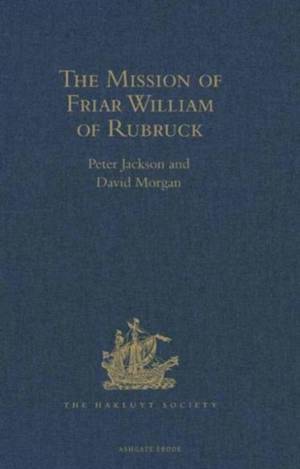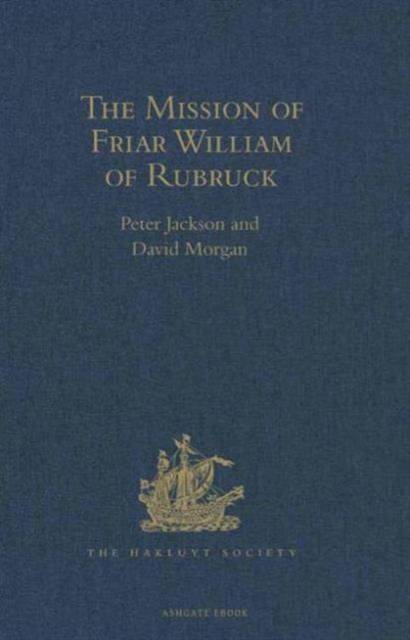
- Retrait gratuit dans votre magasin Club
- 7.000.000 titres dans notre catalogue
- Payer en toute sécurité
- Toujours un magasin près de chez vous
- Retrait gratuit dans votre magasin Club
- 7.000.000 titres dans notre catalogue
- Payer en toute sécurité
- Toujours un magasin près de chez vous
The Mission of Friar William of Rubruck
His Journey to the Court of the Great Khan Möngke, 1253-1255
Of Rubruck William
202,95 €
+ 405 points
Description
Prior to the 13th century the horizons of Western Christians extended no further than the principalities of what is now European Russia and the Islamic powers of the near East. Beyond lay a world of which they had only the haziest impressions. The belief that Christian communities were to be found here was nurtured in the 12th century by the growth of the legend of Prester John; but otherwise Asia was peopled in the Western imagination by monstrous races borrowed from the works of late Antiquity. The rise of the Mongol empire, however, and the Mongol devastation of Hungary and Poland in 1241-2, brought the West into much closer contact with Inner Asia. Embassies were being exchanged with the Mongols from 1245; Italian merchants began to profit from the commercial opportunities offered by the union of much of Asia under a single power; and the newly emerging orders of preaching friars, the Franciscans and the Dominicans, who had been active in Eastern Europe and in the Islamic world since the 1220s, found their field of operations greatly expanded. The Franciscan William of Rubruck, who travelled through the Mongol empire in 1253-55, composed the earliest report of such a missionary journey that has come down to us. Couched in the form of a long letter to the French king Louis IX, this remarkable document constitutes an extremely valuable source on the Mongols during the era of their greatness. Rubruck was also the first Westerner to make contact with Buddhism, to describe the shamanistic practices by which the Mongols and other steppe peoples set such store, and to make detailed observations on the Nestorian Christian church and its rites. His remarks on geography, ethnography and fauna (notably the ovis poli, which he encountered a generation before the more celebrated Venetian adventurer from whom it takes its scientific name) give him an additional claim to be one of the keenest of medieval European observers to have travelled in Asia. This new annotated translation is designed to supersede that of W.W. Rockhill, published by the Society in 1900, by relating Rubruck's testimony to the wealth of material on Mongol Asia that has become accessible in other sources over the past nine decades.
Spécifications
Parties prenantes
- Auteur(s) :
- Editeur:
Contenu
- Nombre de pages :
- 328
- Langue:
- Anglais
- Collection :
Caractéristiques
- EAN:
- 9780904180299
- Date de parution :
- 31-01-99
- Format:
- Livre relié
- Format numérique:
- Genaaid
- Dimensions :
- 157 mm x 236 mm
- Poids :
- 612 g







